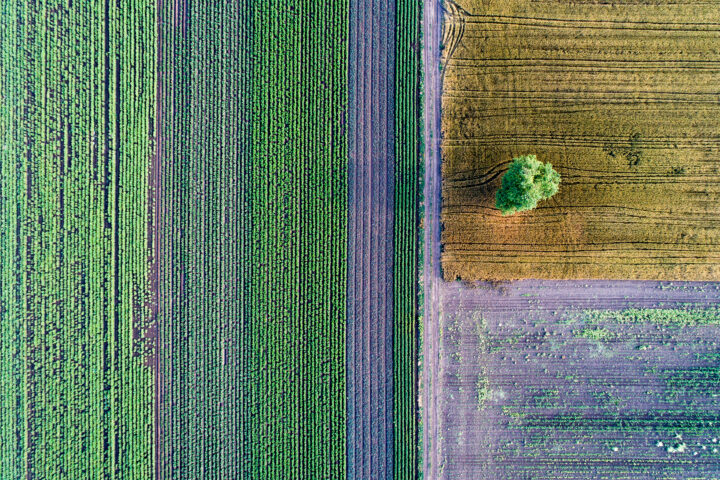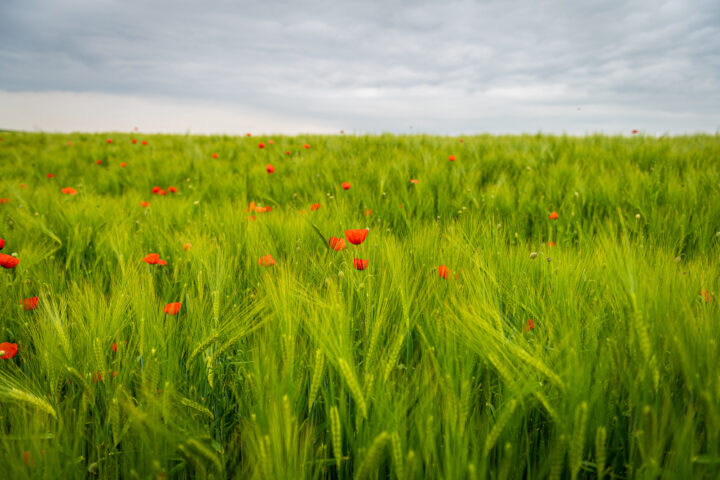
The underestimated danger of plant toxins
Plants produce a variety of chemical substances to protect themselves against predators and diseases, for example. These substances can have a toxic effect in high doses. A recent study by Agroscope highlights the danger of natural substances in Swiss waters.
Monday, February 10, 2025
So-called phytotoxins can be dangerous for humans. In order to assess the potential danger of phytotoxins in Switzerland, researchers at Agroscope, the Swiss government's centre of excellence for agricultural research, are investigating which plant-based toxins are present in our waterways.
Many substances are toxic: classic examples are pyrrolizidine alkaloids in tea and honey, solanine in the green parts of tomatoes or potatoes, phasin in raw beans, prussic acid in apricot kernels or coumarin in cinnamon. Other interesting substances include sambunigrin in elderberry, anthraquinone and oxalic acid in raw rhubarb, and nicotine in the green parts of aubergines. Some herbal teas are contaminated with carcinogenic pyrrolizidine alkaloids.
While residues of synthetic pesticides in water and food are subject to strict legal limits and are regularly monitored, there are hardly any regulations for many plant-based toxins. Public perception of this issue is paradoxical. A famous example of this distorted perception is the study by US biochemist Bruce Adams, which showed as early as the 1990s that 99.99% of the pesticides found in our food are of natural origin.
A well-informed debate on food safety and water quality should therefore be based on scientific findings and give equal consideration to all potential risks. And it is precisely this intention that is the focus of Agroscope's research into natural toxins in our food.
Kindly note:
We, a non-native editorial team value clear and faultless communication. At times we have to prioritize speed over perfection, utilizing tools, that are still learning.
We are deepL sorry for any observed stylistic or spelling errors.
Related articles

Plant Protection – Protecting Crops
Plants of all kinds can become ill. Just as medicines are used in humans, plant protection products are applied to maintain the health of crops and to prevent their destruction by pests (insects, fungi, weeds).

Natural plant defences put to use
Plants release scents to repel pests. Research shows that these natural signals could also be used as herbicides. The approach is exciting, but it is not a panacea – conventional pesticides remain indispensable.

Genetically modified plants contribute to the fight against global warming
The large-scale cultivation of genetically modified crops would counteract global warming. American and German researchers come to this conclusion in a study.

Residues, thresholds, trust – looking calmly behind the headlines
In this conversation with toxicologist Lothar Aicher, the discussion focuses on how residues enter the body, how their potential harm is assessed, and what role modern analytical methods play.

Hazard is not the same as risk: how we understand – and should understand – threshold values
In this episode of the podcast, risk researcher Angela Bearth discusses residues and threshold values in food – a topic often debated emotionally. In public discussions, threshold values tend to dominate, while the complex challenges of agriculture are rarely considered. Studies show, however, that once these relationships are explained and solutions are addressed, people respond in a more differentiated way.

PFAS, trade-offs and responsibility – how politics and agriculture find solutions
In this episode of the joint series by Agrarpolitik – der Podcast and swiss-food.ch, National Councillor Christine Badertscher discusses how residues and threshold values are debated in Parliament.

Thresholds, approvals, responsibility – how plant protection products are really assessed
Threshold values are often at the centre of public debate – yet in reality they are only a small part of a much broader risk assessment system. Dr Michael Beer, Head of the Food and Nutrition Division at the Federal Food Safety Office, provides clarity.

